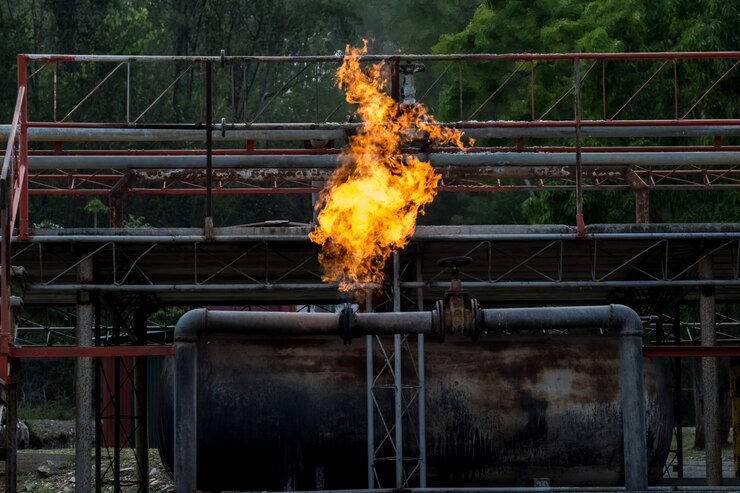Fact Check (May 19, 2025): Are Claims Spreading on US Environmental Groups’ Websites Today About a Major Oil Spill?
Yes, as of May 19, 2025, multiple US environmental advocacy websites and affiliated social media pages are actively circulating claims about a major oil spill. However, while the existence of a spill has been confirmed, the scale, origin, and environmental impact of the incident are being reported with varying degrees of accuracy and clarity. Here’s what’s actually happening—and what’s being miscommunicated.
What We Know So Far About the Oil Spill.
A spill did occur early this morning near a key coastal energy terminal along the Gulf of Mexico. The affected site appears to be linked to an offshore pipeline network operated by a major energy company, though full attribution has not yet been officially confirmed. Initial reports from federal environmental monitoring agencies acknowledge a “significant leak” but emphasize that emergency response teams were deployed within hours to contain the situation.
Estimates of the volume leaked are still being assessed, but preliminary figures suggest a medium-scale incident—not the catastrophic disaster some headlines have implied.
What Environmental Groups Are Claiming?
Several prominent environmental organizations and grassroots climate advocacy platforms have described the spill as one of the “worst oil-related ecological events in recent years,” alleging:
- Severe contamination of marine ecosystems.
- Delayed corporate response and downplayed accountability.
- Health hazards to nearby coastal communities.
- Suppression of real-time satellite imagery and on-site footage.
They are demanding urgent government intervention, independent environmental audits, and potential criminal investigations against the company believed to be responsible.
These claims, however, vary in reliability. Some are supported by whistleblower accounts and early photographic evidence. Others appear speculative, citing anonymous sources and unverified reports.
Why the Story Is Gaining Momentum?
There are several reasons this particular incident has ignited widespread attention and concern across environmental networks:
- Proximity to a vulnerable ecosystem: The spill’s location intersects with marine protected zones and fishing communities.
- Public sensitivity to recent deregulations: Environmental groups argue that policy rollbacks over the past year may have contributed to oversight failures.
- Lack of corporate transparency: The oil company involved has yet to hold a press conference, leading to public distrust.
- Visual evidence circulating online: Drone images and cell phone videos allegedly showing oil slicks have amplified the sense of urgency—even before official investigations are complete.
Separating Verified Facts from Alarmist Claims.
Many of the environmental groups’ concerns are valid, especially regarding ecosystem protection and regulatory accountability. But it’s important to clarify what has and hasn’t been verified:
Confirmed:
- A pipeline-linked spill occurred early May 19 off the Gulf Coast.
- Federal and state environmental agencies are responding.
- Some coastline has already shown signs of contamination.
Unconfirmed or Overstated:
- That it is “the worst spill in a decade” — This claim has not been substantiated by federal data.
- Claims of corporate cover-up — There is no verified evidence of tampering or suppression of data, though transparency has been slow.
- Mass marine life die-offs — So far, no comprehensive ecological damage report has been issued.
What Other Articles Aren’t Addressing?
Most media stories are focusing either on the spill’s surface-level details or the clash between environmentalists and the oil company. But there are deeper, often overlooked dynamics at play:
1. Outdated Spill Detection Infrastructure.
Many pipeline monitoring systems still rely on outdated leak detection methods, which can delay response times. This may have contributed to the scale of today’s incident.
2. The Role of Citizen Surveillance.
Environmental activists are increasingly using satellite imagery, drones, and AI image analysis to identify spills faster than government channels. Today’s claims largely stem from these decentralized watchdogs.
3. Crisis Response Gaps.
The speed at which environmental groups mobilized compared to official agencies underscores a growing trust gap between citizens and institutions. This gap is not just about this spill—it’s about decades of accumulated skepticism.
4. Legal Grey Zones.
Pipelines that operate offshore but are managed by companies headquartered elsewhere often fall into regulatory blind spots. Activists argue that these loopholes enable slow accountability when spills occur.
What Comes Next?
The EPA and Coast Guard have initiated an investigation. Meanwhile, state authorities in Texas and Louisiana are conducting water quality assessments. Depending on the findings, the company responsible could face fines, mandated clean-up costs, and—if negligence is proven—civil or criminal charges.
Environmental groups are planning public demonstrations, petitions, and legal challenges. Online pressure campaigns calling for a halt to all drilling in the Gulf have gained significant traction today, trending across several platforms.
Conclusion: Yes, There Is a Spill—But Context Matters.
To answer the original question: Yes, environmental groups in the US are spreading claims today about a major oil spill—and those claims are based on a real incident. However, while the core event is factual, many of the surrounding narratives are still unfolding and not yet independently verified.
What’s most clear is that this event has reignited debate about fossil fuel infrastructure, corporate responsibility, environmental protection, and the role of public vigilance in holding power to account. As the facts continue to emerge, distinguishing between legitimate concern and speculative amplification remains essential.
Reported by: Evan Cordell.
US Environmental Policy Correspondent.
Fact After Fact Magazine.
I am an accomplished author and journalist at Fact Finders Company . With a passion for research and a talent for writing, I have contributed to numerous non-fiction titles that explore a wide range of topics, from current events, politics and history to science and technology. My work has been widely praised for its accuracy, clarity, and engaging style. Nice Reading here at Fact After Fact.








